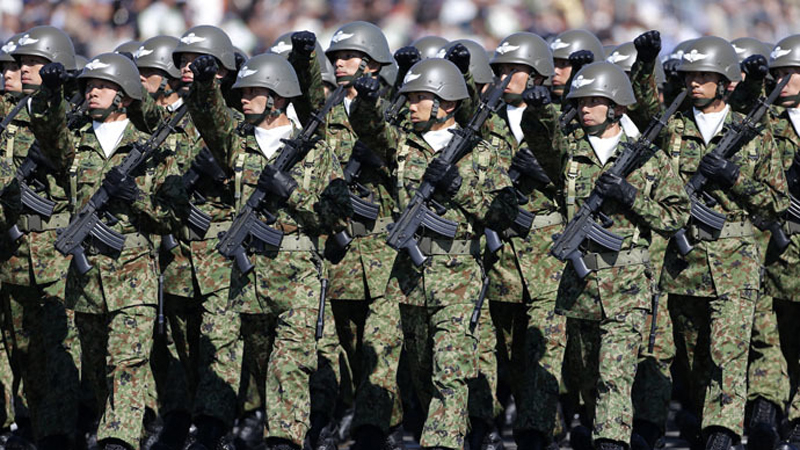Japanese military require $50 billion from parliament to oppose Beijing in the South China Sea, as well as to protect itself from a possible missile attack by North Korea.

Photo: Reuters / Issei Kato
Japan is going to increase its defense spending again and break the record for the fifth year in a row. Tokyo intends to use this money to oppose Beijing in the East China Sea, as well as to protect itself from a possible missile attack by North Korea.
On Wednesday, the Japanese Defense Ministry announced that Prime Minister Shinzo Abe’s cabinet will require $50 billion (5.17 trillion yen) from parliament. If the request is approved, the country’s defense spending will be increased by 2.3%.
According to the submitted proposal, one of the biggest parts of the military budget, about $1 billion, will be spent on upgrading Japan’s PAC-3 Patriot surface-to-air missile defense systems for increasing of range and accuracy for deployment in 2020.
The Japanese military also is considering the purchase of additional the F-35 US fighter jets, as well as developing better anti-ship missiles. Some part of additional money is planned to be spend on developing a new submarine with advanced surveillance capabilities, station a 2,000-strong mobile amphibious unit near Nagasaki, dispatching extra personnel in the Philippines and other Asian nations, as well as working with the US on next-generation missile interceptors.
Shinzo Abe came to power in 2012 and overturned a decade of defense cuts in the country. Large sections of Japanese society are against of the increasing militarization. However, growing tension with North Korea and China are making the mood to be changing.
Earlier in August, Pyongyang successfully launched a ballistic missile from a submarine, demonstrating progress in its missile program. The reason for confrontation between Tokyo and Beijing is a chain of islands in the East China Sea, which both nations claim sovereignty over.
Last week, during negotiations in Tokyo, Japanese Foreign Minister Fumio Kishida told his Chinese counterpart Wang Yi that Chinese ships must stop violating Japanese territory around the disputed islands.



